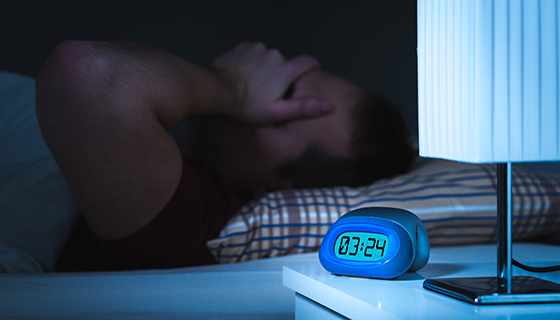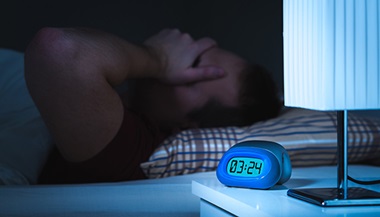Circadian Rhythm Disorders
What are circadian rhythm disorders?
Circadian rhythm disorders are disruptions in a person's circadian rhythm — another name for the body’s internal clock that regulates a variety of biological processes. Brain wave activity, hormone production, cell regeneration and other biological activities are linked to this 24-hour cycle. Circadian rhythm disorders can be caused by many factors, including changes in routine, medications and time zone changes.
Get a Better, More Restful Night’s Sleep

More than 60 million Americans suffer from poor sleep quality, and more than 40 million meet the diagnostic criteria for sleep disorders. Sleep is critical to a healthy mind and body – learn how to get a better, more restful night’s sleep in the Johns Hopkins Healthy Sleep portal.
Symptoms
Symptoms include excessive sleepiness and lack of daytime alertness. In the circadian rhythm disorder called delayed sleep phase syndrome, patients tend to fall asleep at very late times and have difficulty waking up in time for school. In another disorder, advanced sleep phase syndrome, the major sleep episode is advanced in relation to the desired clock time. The result is evening sleepiness, an early sleep onset and waking up earlier than desired.
Diagnosis
A daily sleep log helps demonstrate sleep irregularities.
Treatment
Treatment is designed to adjust the patient’s sleep pattern so that he or she can get the necessary sleep and function daily. Treatments include external stimulus therapy, such as bright light therapy or chronotherapy, a behavioral technique in which the bedtime is gradually adjusted to achieve a desired bedtime. Bright light therapy is designed to reset a patient’s circadian rhythm to a desired pattern.






